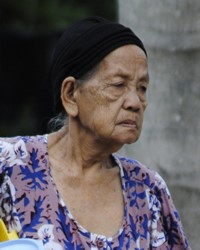Dakka in Indonesia

Photo Source:
Copyrighted © 2026
Mhh18_photography - Shutterstock All rights reserved. Used with permission |
Send Joshua Project a map of this people group.
|
| People Name: | Dakka |
| Country: | Indonesia |
| 10/40 Window: | Yes |
| Population: | 11,000 |
| World Population: | 11,000 |
| Primary Language: | Dakka |
| Primary Religion: | Islam |
| Christian Adherents: | 4.00 % |
| Evangelicals: | 0.90 % |
| Scripture: | Translation Started |
| Ministry Resources: | No |
| Jesus Film: | No |
| Audio Recordings: | No |
| People Cluster: | Bugi-Makassar of Sulawesi |
| Affinity Bloc: | Malay Peoples |
| Progress Level: |
|
Introduction / History
The Dakka people, an indigenous group residing in Indonesia, have a long history rooted in the Sulawesi Island. Historically, the Dakka lived in isolated communities, relying on the dense forests and rugged terrain to sustain their way of life and protect them from outsiders. Their isolation allowed them to preserve a distinct language, culture and social structure over centuries. However, the pressures of modernization and external influences have begun to reshape their traditional way of life. Despite these changes, the Dakka have shown resilience, adapting to new circumstances while maintaining key aspects of their cultural identity.
What Are Their Lives Like?
The Dakka people primarily engage in agriculture, cultivating crops like rice, maize and cassava. These crops not only serve as staples in their diet but also as key economic resources. In addition to farming, the Dakka engage in hunting, fishing and gathering forest products, which supplement their agricultural activities. The community structure among the Dakka is highly communal, with extended families working together to manage farms and share resources.
The Dakka live in small villages that are often nestled in remote, mountainous regions. These villages are composed of traditional homes made from locally sourced materials such as wood and bamboo. Life in these villages follows the rhythms of the agricultural seasons, with communal activities centered around planting, harvesting, and local festivals.
What Are Their Beliefs?
The Dakka people's beliefs are deeply rooted in animism, a worldview that sees all elements of nature as imbued with spiritual significance. They believe in a wide array of spirits that inhabit the forests, rivers and mountains which they consider essential to maintaining balance and harmony in their lives. Rituals and ceremonies are an integral part of Dakka life, conducted to honor these spirits and seek their favor for successful harvests and protection from harm.
In recent years, the influence of Islam and Christianity has grown among the Dakka, leading to a blending of traditional practices with these newer religious influences. Despite this, many Dakka continue to hold onto their animist beliefs, integrating them into their daily lives alongside their practice of Islam or Christianity. Religious leaders, whether traditional shamans or newly introduced clergy, play a vital role in guiding the community's spiritual life.
What Are Their Needs?
The Dakka people face several pressing needs that stem from their geographical isolation and limited access to modern resources. Healthcare is a significant concern, with many Dakka lacking access to basic medical services, leading to high rates of preventable diseases. Education is another critical need, as many Dakka children do not have access to adequate schooling, which limits their opportunities for economic advancement and integration into broader Indonesian society.
Economic development is also a major need. The Dakka would benefit from initiatives aimed at improving agricultural productivity, access to markets, and sustainable resource management. Infrastructure improvements, such as roads and communication networks, are essential to connect the Dakka villages with larger economic centers, enabling them to sell their produce and access goods and services more easily.
Prayer Points
Pray for many from the Dakka people to understand both God's judgment and his majestic glory and goodness.
Pray for loving workers to go to the Dakka people, and for their hearts to be ready to receive their savior.
Pray for a chain reaction of families reaching families that result in thousands of new disciples who share their faith with others.
Pray for grace and truth expanding into their entire society as all believers learn to love others.